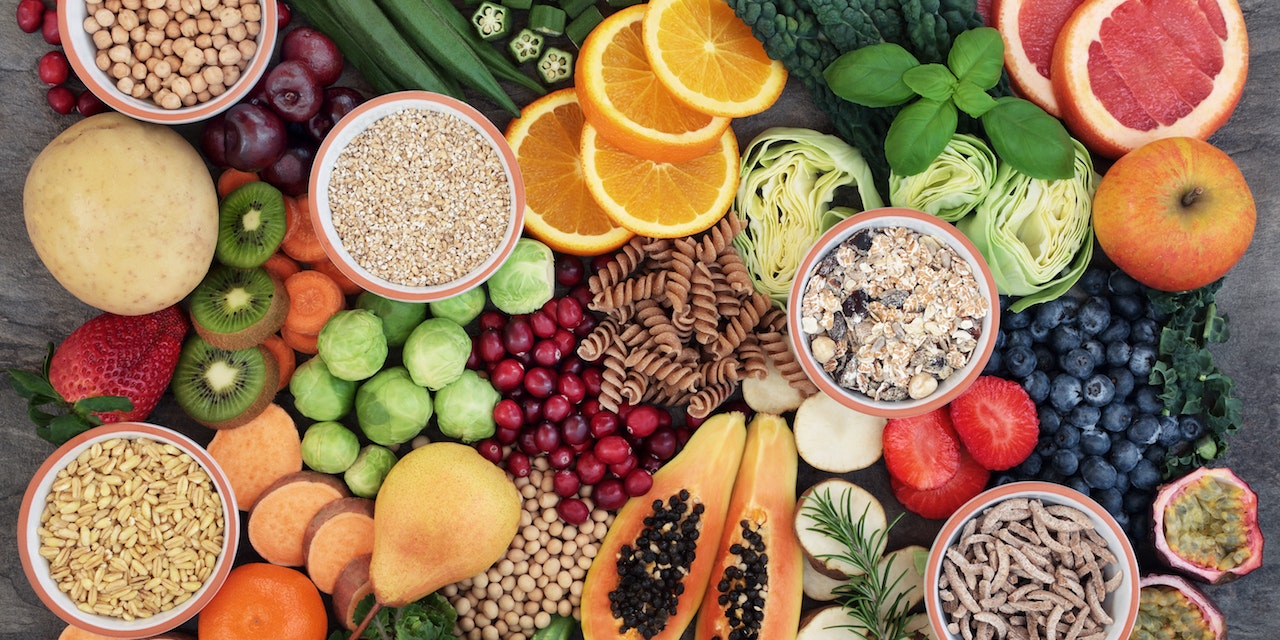Basics of Nutrition
Mixed messages about health and nutrition can be confusing, but the concepts are quite simple. We’ll break down why nutrition is so important.
- Published: 4/13/2022
- 4 min. read

- Published: 4/13/2022
- 4 min. read
We live in a world where many people are preaching personal nutrition beliefs. This can be confusing and overwhelming when we receive mixed messages about what we really need to make us healthy. But at the core of it, the concepts of nutrition and healthy eating are pretty simple. We'll break down the basics of nutrition and why it's so important.
Nutrition basics
Nutrition is consuming (eating) food and using it for our growth, development, and energy. In other words, good nutrition is essential for our vitality.
Calories
Calories are the basics of nutrition. They are a unit of energy and a way of measuring how much energy our body gets from the food or drink we consume. The amount of calories we need depends on varied factors such as your age, body size and height, physical activity, and genetics.
To maintain our weight, we need a similar number of calories as the number we burn overall. This includes the energy we burn at rest (basal metabolic rate) as well as the energy we use to move around or even to break down food (1). The Lifesum app is a perfect way to figure out how many calories to aim for on a daily basis. Learn more about how it's calculated here: The Calorie Goal, Explained.
Macronutrients
Good nutrition also means ensuring that we get a balance of the right nutrients. This includes macronutrients and micronutrients. Macronutrients are nutrients that our body requires in large amounts and provide our bodies with calories for energy to function. The three macronutrients are protein, carbohydrates, and fats (2).
Carbohydrates
Carbohydrates are needed to fuel our muscles and are the preferred source of energy for our brains. There are different types of carbohydrates, such as simple and complex carbohydrates. The simple ones are easily digested, so they work better for a quick boost of energy, such as for post- and pre-workout meals. Some nutrient-rich options of sources of simple carbohydrates include bananas, fruit, yogurt, and milk.
As for complex carbohydrates, they are longer-lasting and high in healthy nutrients. They also contain fiber, essential for slow release and sustained energy, and good for gut health. They are also rich in vitamins and minerals. The majority of your diet should be this type of carbohydrate. Examples include whole grains (brown rice, oats, whole-wheat pasta, and bread), quinoa, and some vegetables and fruits.
Proteins
Proteins are needed to build and repair our muscle tissue. Protein is also vital for our body structure, including bones. It helps promote fullness and satisfaction, so it can be helpful for weight management or weight-loss plans. Nutrient-rich examples of protein include eggs, lean poultry, greek yogurt, beans, nuts, and even insects!
Fats
Fats are the densest in calories, meaning you'll get more calories in a smaller amount, but this doesn't mean you should avoid them. Healthy fats are essential for hormone production, protect our organs, and can even help us absorb and take in the fat-soluble vitamins (A, D, E & K). Healthy fat sources include oily fish, nuts, seeds, avocado, olives, and plant oils.
Micronutrients
Speaking of vitamins, let's learn what they are. Micronutrients are needed by the body in smaller amounts but are still essential to our body function. This includes vitamins, minerals, antioxidants, and phytonutrients. Micronutrients are vital for healthy development and disease prevention (3). These can be found in a wide variety of natural foods, including colorful plant-based foods, lean meats, whole grains, and healthy fats.
Back to basics
Aiming to include a balance of the nutrients we just reviewed will help your body function at its best, fuel your body, help you feel good, and prevent chronic disease and malnutrition. It can also support healthy mental health.
So to build a sensible, healthy eating plan, it comes down to a balance of foods, such as focusing on natural foods instead of processed or packaged ones. This includes lots of whole grains, fruits, vegetables, lean proteins, and healthy fats. Want to make sure you're making the best of your nutrition? Download Lifesum to try nutritionist-crafted and approved plans.
All of the content and media on Lifesum is created and published for information purposes only. It is not intended to be used as a substitute for medical advice or treatment. Users should always consult with a doctor or other health care professional for medical advice.
3 references (hide)
All of the content and media on Lifesum is created and published for information purposes only. It is not intended to be used as a substitute for medical advice or treatment. Users should always consult with a doctor or other health care professional for medical advice. If you have or think you are at risk of developing an eating disorder, do not use the Lifesum app and seek immediate medical help.